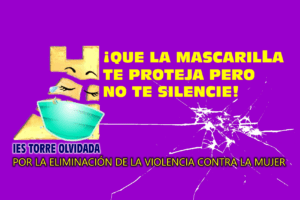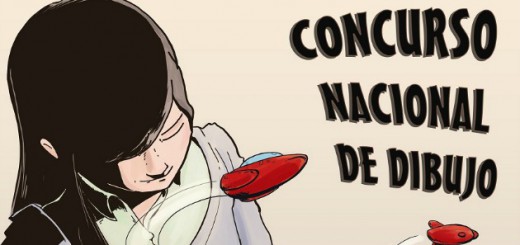IES TORRE OLVIDADA (España)
PROGRAMMES/LEVELS OF EDUCATION OFFERED:
-Compulsory Secondary Education. Students are aged between 12 and 16. In this school you study for free first to the fourth year of compulsory education.
-Post-compulsory education: Basic vocational studies (addressed to students who did not succeed in secondary education) and Vocational Studies related to Food Processing.
NUMBER OF TEACHERS : 34 teachers and 260 students.
MOTIVATION OF THE SCHOOL TO START THIS PROJECT: This project appears as a need to devise activities to avoid and prevent cyberbullying. After some cases in our school, we decided that it was necessary to start a new line of work, which is now part of the strategic plan of the management team. The counselling department has been working on this in the last years and now it was necessary for us to go further and to learn from other countries´ experiences to innovate and open our school to Europe.
RESPONSIBLE PEOPLE OF THE PROJECT: The person responsible is Rosa Anguita Rísquez. She is an English teacher and also the bilingual coordinator of the school. She has a large experience in formation and currently she conducts special courses for teachers about evaluation and learning and teaching tools. This teacher has a permanent position in this school, therefore she will continue working in this school during the years of the project. In the event that she could not coordinate the project, we have planned that there would be four permanent teachers who would deal with the coordination of the project. These teachers belong to the bilingual section and to the languages departments. Besides, there is a team for COMRED (a programme for the prevention of cyberbullying) formed by the head of studies, the counsellor, two tutors and the coordinator of the project to work with these topics.
EXPERIENCE TO CONTRIBUTE TO THE PROJECT For the school it is the first time to participate in a project. However, this is not the case for the staff. Some teachers have previously worked in other schools where Erasmus+ projects were developed. They have contributed actively in the design of activities for the mobilities of the projects. Besides, they have participated in some mobilities in other countries. Therefore, we have people who will guarantee that the project will be successful. The school has experience in organizing events for other institutions. We have organized games, gymkhanas, sport events and open doors days where all the primary schools of the village have met. Our school is now prepared for a new challenge: to open a door for internationalization, innovation and permeability. It is the time for us to give a step forward, and to walk a new path of getting the same objectives in different countries of Europe. Undoubtedly, this implies stepping outside of your comfort zone, but the advantages to be achieved are endless. The possibility to make Europe closer, to approach Europe to our students and to bring Europe to our village only offers benefits.
Lycée Louis Thuillier (Francia)
The secondary school, Lycée Louis Thuillier, is a very big school located in Amien , in the north of France, near other two secondary school. 180 teachers (secondary school and high school) work there. They are 1731 pupils and students. Some of them live in dormitories during the week. Our pupils from the secondary school are between 15 and 18 years old and the students are 18, 19, 20 years old. They study foreign languages like English, Spanish, Italian, German. And they also can study sign language, arts, philosophy, sports like professional. As for the students, they prepare competitive examination in order to study in prestigious high schools in France. For a couple of years, our secondary school has taken part in two exchanges with Denmark and Germany. We also have different bilingual classes in English, and a speciality in Spanish. Every year we organise school travels in Spain (2020) or in Germany (2020), in England. Two Erasmus+ projects have been organised. Our school offers differents oportunities to study and travel in Europe in order to improve the relationship with European countries, to improve the knowledge in English, Spanish, Italian and German. We have participated in European debates against pupils from another secondary school of our region. We are used to taking part in European projects in order to give the chance to our pupils to discover another cultures, languages, countries and to think about cyberbulling…. And about the subject of this Erasmus+ Leave your Mobile and Move on, cyberbullying is one of the subjects we have to teach and work with our pupils (Class called Première) since september 2020 because of the new educational reform : that’s why we worked about this subject the past november 2019 and we want to take part in this interesting European project. Our strength is the experience we have in Erasmus and we think it has an added value for this project. We are used to organizing travels to other countries and to being hosts for other schools. Apart from the responsible person for this project, we have a team of other teachers who will form the local commission. These teachers belong to the foreign languages department, especially the English and Spanish sections. As for inclusion, we think that we can also be very helpful because in France inmigration started before than in Denmark and Spain. French teenagers are multiracial and their families have been living in France for two generatios, what means that we have to work together to build a new concept of French and European identity. Our weakness lies on the need to learn about learning tools and techniques and this project offers us a good knowledge on apps and tools to use in our lessons. We feel very interested in the topics of this project because the topic proposed is compulsory to be studied in the new educational reform.
Struer Statsgymnasium (Dinamarca)
International and global IB school campus for both Danish and foreign students. The students are aged between 16 and 19 and they study a three- year course. Due to the high number of foreign students, the school has a modernized boarding school with room for 80 students. Struer Statsgymnasium has a total number of 850 students and a total staff number of 80. All teachers are highly qualified within their fields of expertise and the school aims at focusing on an open and expanding environment of learning in an international environment with the school slogan, “Learn More”. Apart from being an international school with a global scope, Struer Statsgymnasium also cooperates with local companies, among these the worldwide known company, Bang & Olufsen, offering possibilities of learning to students within a wide range of specialized areas. As an organization, Struer Statsgymnasium can offer an international and global perspective to this project as a modernized and technically advanced campus-school, offering both advanced opportunities for learning, for producing intellectual and creative results, for the dissemination of project results and finally for the accommodation used within the cultural exchanges of the project. All key persons potentially involved in the project are highly qualified and experienced teachers who can contribute in different areas, such as technical, educational, innovative and creative in both planning, performing, structuring and finishing the different parts of the project, as well as ensuring sustainability after the completion of the project. In the event that the responsible person had to leave the school, other teachers from the foreign languages department will coordinate the project from Denmark. Finally, Struer Statsgymnasium has a history of working with several Comenius and Erasmus+ projects in the past which ensures a lot of experience to build on in working with this project. We also think that we can learn from the project because this project offers us a topic very important for us. Spain and France have a large experience in having inmigrants in their schools, especially Andalusia, which has received a lot of people coming from other countries. They are working for inclusion, respect and tolerance to other races. In the last years, Denmark has proved to be a new melting pot because we have been receiving a lot of people from other countries. The low birth rate makes it necessary to see this migration wave as necessary, but obviously, at school we need to establish new patterns and models to work for inclusion. This project will help us to create a new image of Denmark and Danish people where everyone finds their space.
ISTITUTO COMPRENSIVO STATALE “A. FOGAZZARO” DI NOVENTA VICENTINA (Italia)
Our school is located in Noventa Vicentina (province of Vicenza) between Vicenza, Verona, Padova and Venezia, surrounded by the Berici and Euganean Hills. Noventa Vicentina is a country with a deep agricultural and mechanic industry tradition, which also preserves significant historical evidence. Our area is worldwide famous for its Palladian Villas, belonging to the UNESCO World Heritage. Our Institute includes three school-levels: Infant, Primary and Lower Secondary. The school involved in the project is the “Antonio Fogazzaro” Lower Secondary school. It has 233 pupils, aged 11 to 14. There are 25 teachers working in this school. 15% of our students come from non-EU countries, in particular Morocco and, more recently, China and Senegal. The intercultural issue needs care both inside the school and on the territory, along with the relational problems it implies, especially among teenagers. In addition to this, we are noticing a growing process of digitalization of the communication, namely by means of social networks, among pupils who use their devices without control and safety system, to the detriment of a possibly healthier relational modality and exposing them to serious risks at a time. Therefore, we chose to work on two main directions in our school: the prevention of bullying and the promotion of differences. As for bullying prevention, we project specific activities from the first to third class: education to the use of social networks (pupils use Google Classroom for communicating among them and with the teacher on cultural, educational and practical school topics); conferences with an expert Lawyer to beware of the illegal use of social networks; conferences with postal police. We are currently working with a psychologist on a specific activity focusing on fighting bullying also by means of technology. In order to and value differences we work a lot on activities such as Ensemble Music (a successful Music Course active in our school since 1988), Theatre, Green Lab project; 2.0 class, where each student is given electronic devices for everyday school learning. Most of the teachers in our school are strongly motivated to work on inclusion as the only effective way of overcoming many of the problems bound to a multicultural and digital-oriented community. Coming to know and deepen ways, means and strategies for facing such issues in other countries, by other teachers working in different school systems and dealing with territories with different characteristics would help a lot. This is the main reason why we decided to commit on this Erasmus project. All these teachers allow us to commit to the project, aware that even if some of them should leave the school, other experts from the language department will carry on the project activities. All the staff involved in the project are largely qualified and can share experience in planning and designing activities and innovation. And technology. This will make the project be successful.



